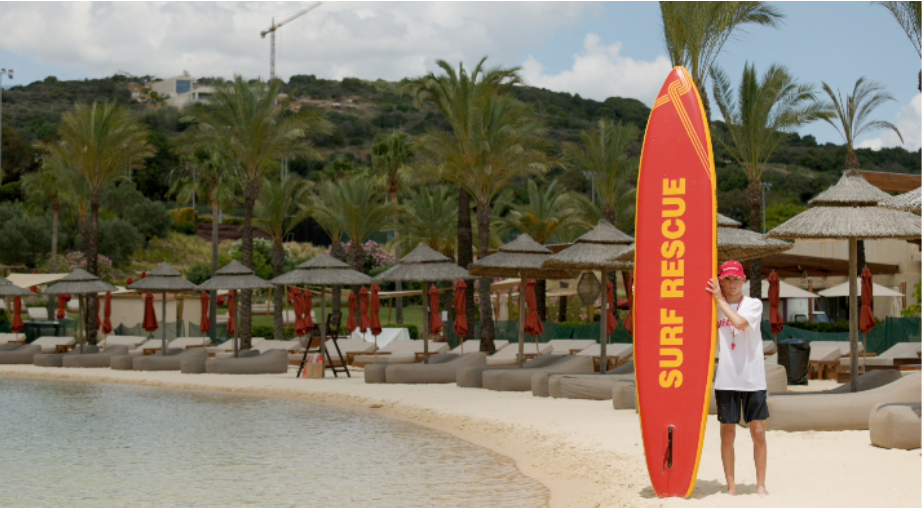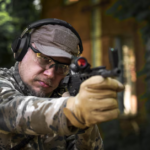A lifeguarding course is essential for any individual who needs to become a lifeguard. These courses teach you the skills expected to guarantee the safety of swimmers and handle emergencies. Lifeguard training programs are far reaching and cover different viewpoints, from basic water safety to cutting edge rescue techniques.
This article will guide you through what you are shown in a lifeguarding course.
Basic Water Safety
Understanding Water Hazards
One of the first things you learn is identifying potential water hazards. This incorporates understanding the dangers related with different water bodies like pools, lakes, and oceans. Realizing these hazards helps prevent accidents.
Preventive Measures
You additionally learn preventive measures to keep swimmers safe. This incorporates upholding pool rules, monitoring weather patterns, and guaranteeing gear is looking great. Prevention is a vital piece of a lifeguard’s obligations.
Rescue Techniques
Basic Rescue Skills
In a lifeguard course, you start with basic rescue skills. This incorporates how to move toward a troubled swimmer, how to securely enter the water, and how to carry somebody to safety. These skills are crucial for powerful rescues.
High level Rescue Techniques
As you progress, you learn progressed rescue techniques. This incorporates spinal injury management, numerous casualty rescues, and taking care of mind boggling rescue situations. These techniques require more practice and accuracy.
First Aid and CPR
Basic First Aid
First aid is a fundamental piece of lifeguarding. You learn how to deal with minor injuries like cuts, scratches, and injuries. Realizing basic first aid helps you give prompt attention and settle the casualty until professional assistance shows up.
CPR Training
Cardiopulmonary resuscitation (CPR) is another basic skill. You are shown how to do mouth to mouth on grown-ups, kids, and babies. This incorporates chest compressions, rescue breaths, and the utilization of an automated external defibrillator (AED). CPR training can save lives in emergencies.
Emergency Reaction
Emergency Activity Plans
You learn how to make and execute emergency activity plans. These plans frame the steps to take in different emergency scenarios, like drowning, injuries, or cataclysmic events. Having an arrangement guarantees a speedy and coordinated reaction.
Group Coordination
Successful emergency reaction requires teamwork. You are shown how to convey and facilitate with different lifeguards, emergency responders, and facility staff. Great group coordination works on the possibilities of a fruitful rescue.
Physical Fitness and Conditioning
Swimming Skills
A lifeguard should be an incredible swimmer. The course incorporates thorough swimming practice to work on your speed, perseverance, and strategy. Solid swimming skills are essential for coming to and safeguarding casualties rapidly.
Physical Conditioning
Physical fitness is crucial for lifeguards. You participate in different activities to develop fortitude, stamina, and dexterity. Standard physical conditioning helps you play out your obligations successfully and lessens the gamble of injury.
Legal and Ethical Obligations
Understanding the Law
You learn about the legal parts of lifeguarding. This incorporates understanding obligation, carelessness, and the legal obligations of a lifeguard. Realizing the law helps you pursue informed choices and safeguard yourself legally.
Ethical Considerations
Ethical training covers the ethical obligations of a lifeguard. This incorporates approaching all swimmers with deference, keeping up with privacy, and maintaining safety standards. Ethical direct guarantees a professional and dependable lifeguard administration.
Specialized Training
Lifeguard instructor course
For those keen on teaching, the lifeguard instructor course is accessible. This course prepares you to teach lifeguarding skills to other people. It incorporates progressed knowledge of rescue techniques, teaching strategies, and how to survey students.
Specialized Rescue Training
A few courses offer specialized rescue training. This incorporates training for specific environments like open water, streams, or water parks. Specialized training furnishes you with the skills required for different lifeguarding settings.
Summary
Lifeguarding courses are exhaustive and cover a large number of topics. From basic water safety to cutting edge rescue techniques, these courses set you up for the challenges of lifeguarding. They teach essential skills like first aid, CPR, and emergency reaction. Physical fitness, legal knowledge, and ethical training are additionally significant pieces of the educational plan.
For the individuals who need to teach, the lifeguard instructor course gives the necessary training. By finishing a lifeguarding course, you become a skilled and responsible lifeguard.
If you are searching for a legitimate association to get certified, think about the American Lifeguard Association. They offer broad training programs that meet industry standards and set you up for a rewarding career in lifeguarding.







